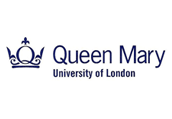Research Project
Aestheticization of Life and Cosmopolitan Modernity: The Poetics of Elegance in the Long 19th Century
In the course of the long 19th century the pursuit of ‘elegance’ emerged as a phenomenon aiming at an intensification of life through aestheticization. The distinguishing features of an elegant appearance manifested themselves in the self-fashioning of an individual person (language, attire, behaviour) and in the shaping of domestic and public environments (artefacts, interior design, architecture). The concept of elegance was realized in social action and cultural practices, particularly in convivial conversation, entertainment and leisure activities. The research project “The Poetics of Elegance in the Long 19th Century” demonstrates that one of the crucial patterns of modernity manifests itself in the phenomenon of elegance, which inaugurates a specific aesthetic of the surface as a distinguishing social feature as well as a marker transcending the established order: an imaginary community of urban origin that supersedes historically conditioned social and gender norms.
The research project combines cultural and historical studies in an interdisciplinary approach to explore the various social and medial scenarios of elegance. Committed to the methods of transnational historiography, the study outlines the European topography of the so-called ‘elegant world’ in the tension between national aspirations and transnational aesthetic norms. The project focuses on ‘circulating things’, in particular print culture, along with objects of material culture. It pays particular attention to an innovative type of general interest magazines and cultural journals, which reported in detail on urban social, cultural, and material life and helped spread the new urban styles of living and had a decisive impact on the staging of a new, imaginary cross-border community. Its geographic range is marked by the imperial metropolises of London, Paris, Vienna, and Saint Petersburg, as well as by aspiring Central and Eastern European cities such as Berlin and Leipzig, Prague and Pest, which developed into new urban centres in the course of the 19th century. The transnational style of elegance arose at the very time when nationalism gained currency in many European countries. It thus articulated the ambivalent identity of European elites, which saw themselves as belonging at once to national traditions and to an emerging transnational urban culture.

The researcher Dr Anna Ananieva was granted a two-year Marie Skłodowska-Curie Individual Fellowship (2016-2018) at Queen Mary University of London to work on reseach project “The Poetics of Elegance”. She was supervised by Professor Andreas Schönle.
The Marie Skłodowska-Curie research fellowship programmme is a set of mobility research grant schemes funding researchers in Europe. The Marie Skłodowska-Curie Fellowship is one of Europe’s most competitive and prestigious awards aimed at fostering interdisciplinary research and international collaborations.

© 2025 poeteleg.eu | All Rights Reserved